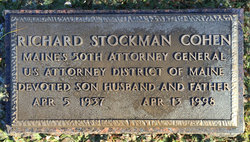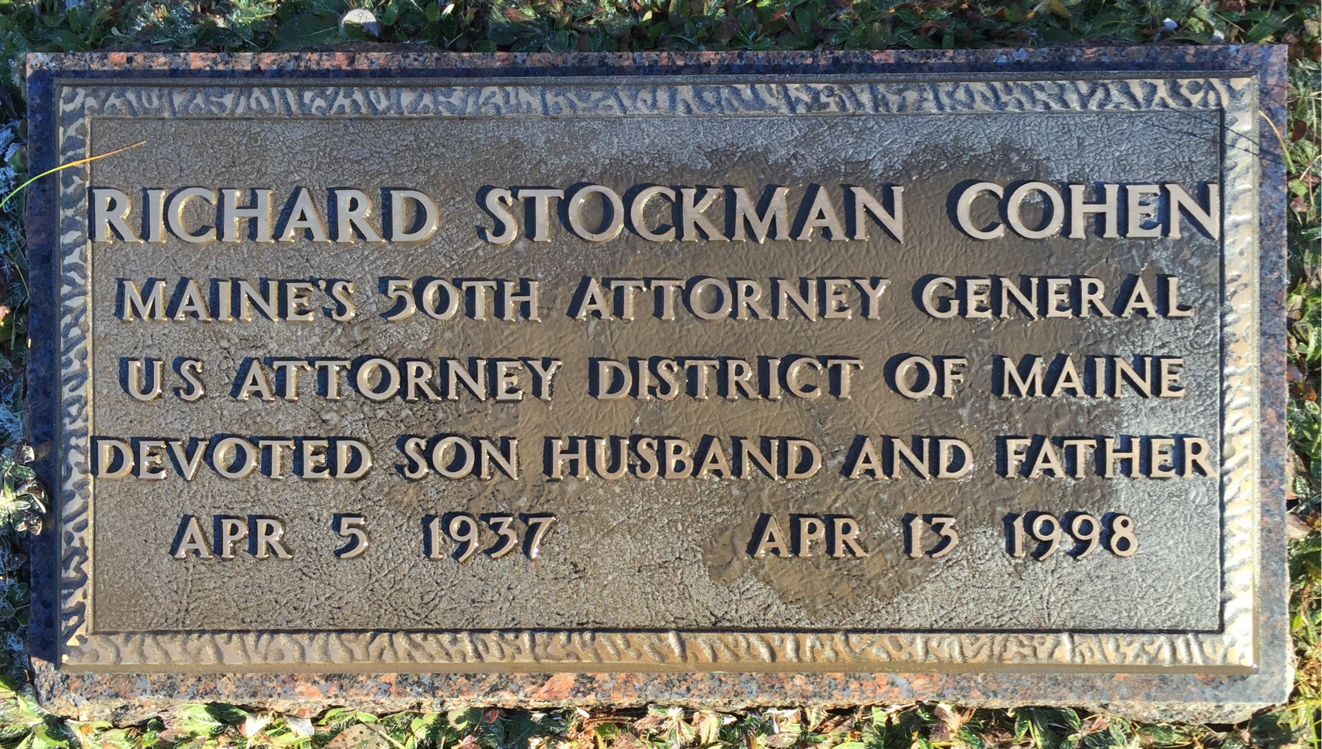Cohen died at Mount Sinai Hospital in New York, where he was scheduled to undergo surgery today for Crohn's disease, an intestinal affliction he had battled for more than a year, friends said.
Cohen's three decades in law enforcement were a period of steady growth in the offices of state and federal prosecutors. Rising caseloads embraced new legal areas, including large-scale drug smuggling, environmental law and consumer-related prosecutions.
"He was very creative and innovative in terms of law enforcement solutions," said Jay P. McCloskey, Cohen's successor as U.S. attorney. "He was the one who conceived, proposed and got adopted the concept of statewide drug enforcement agencies that served as models for other agencies around the country."
A Brookline, Mass., native, Cohen was fresh out of Boston University law school in 1963 when he joined the Maine Attorney General's Office as counsel to the Bureau of Taxation.
In 1965, he went on to create a separate criminal division within the Attorney General's Office and was named its first chief two years later. He drafted legislation that led to the current system of centralized state investigation and prosecution of Maine homicides.
Cohen revamped an archaic system in which cases were handled, sometimes ineptly, by part-time county attorneys, said John M.R. Paterson, a former colleague now in private practice in Portland.
"He really revolutionized it. He made it professional," said Paterson, who characterized Cohen as "someone who believed in what he was doing, a public servant in the best sense of the word."
During the 1970s, Cohen was a key player in the revision of the state criminal code and in the creation of the Maine Criminal Justice Academy.
The Legislature in 1979 elected Cohen attorney general, marking the first time lawmakers turned to a career prosecutor. During his two years in the post, he worked with Gov. Joseph E. Brennan to negotiate the landmark federal settlement that extinguished claims by two Maine Indian tribes to 60 percent of the state's land area.
A Republican, Cohen's tenure in his two top prosecutorial jobs was conditioned upon his party's fortunes in legislative and presidential elections.
When Democrats reclaimed control of the Legislature in 1980, Cohen was replaced as attorney general. But President Ronald Reagan appointed him as U.S. attorney, beginning a 12-year tenure that continued through the Bush administration.
Deliberate by nature with a placid exterior, Cohen had a low-key style in and out of the courtroom and a dry, self-effacing sense of humor most noticeable to those with whom he worked.
"He did not have a large ego, which is very easy to get when you're the U.S. attorney or the attorney general," McCloskey said. "He never saw himself that way, nor did he act that way."
After leaving public office, Cohen served as special counsel to the Passamaquoddy Tribe, and later headed a special commission to foster cooperation between the state and its Indian tribes.
After he became ill in January 1997, Cohen was in and out of hospitals for much of the year for treatment and surgery. He was able to return to his Augusta home late last year, but had to be continually monitored.
Cohen died at Mount Sinai Hospital in New York, where he was scheduled to undergo surgery today for Crohn's disease, an intestinal affliction he had battled for more than a year, friends said.
Cohen's three decades in law enforcement were a period of steady growth in the offices of state and federal prosecutors. Rising caseloads embraced new legal areas, including large-scale drug smuggling, environmental law and consumer-related prosecutions.
"He was very creative and innovative in terms of law enforcement solutions," said Jay P. McCloskey, Cohen's successor as U.S. attorney. "He was the one who conceived, proposed and got adopted the concept of statewide drug enforcement agencies that served as models for other agencies around the country."
A Brookline, Mass., native, Cohen was fresh out of Boston University law school in 1963 when he joined the Maine Attorney General's Office as counsel to the Bureau of Taxation.
In 1965, he went on to create a separate criminal division within the Attorney General's Office and was named its first chief two years later. He drafted legislation that led to the current system of centralized state investigation and prosecution of Maine homicides.
Cohen revamped an archaic system in which cases were handled, sometimes ineptly, by part-time county attorneys, said John M.R. Paterson, a former colleague now in private practice in Portland.
"He really revolutionized it. He made it professional," said Paterson, who characterized Cohen as "someone who believed in what he was doing, a public servant in the best sense of the word."
During the 1970s, Cohen was a key player in the revision of the state criminal code and in the creation of the Maine Criminal Justice Academy.
The Legislature in 1979 elected Cohen attorney general, marking the first time lawmakers turned to a career prosecutor. During his two years in the post, he worked with Gov. Joseph E. Brennan to negotiate the landmark federal settlement that extinguished claims by two Maine Indian tribes to 60 percent of the state's land area.
A Republican, Cohen's tenure in his two top prosecutorial jobs was conditioned upon his party's fortunes in legislative and presidential elections.
When Democrats reclaimed control of the Legislature in 1980, Cohen was replaced as attorney general. But President Ronald Reagan appointed him as U.S. attorney, beginning a 12-year tenure that continued through the Bush administration.
Deliberate by nature with a placid exterior, Cohen had a low-key style in and out of the courtroom and a dry, self-effacing sense of humor most noticeable to those with whom he worked.
"He did not have a large ego, which is very easy to get when you're the U.S. attorney or the attorney general," McCloskey said. "He never saw himself that way, nor did he act that way."
After leaving public office, Cohen served as special counsel to the Passamaquoddy Tribe, and later headed a special commission to foster cooperation between the state and its Indian tribes.
After he became ill in January 1997, Cohen was in and out of hospitals for much of the year for treatment and surgery. He was able to return to his Augusta home late last year, but had to be continually monitored.
Inscription
Maine's 50th Attorney General
US Attorney District of Maine
Devoted Son Husband and Father
Sponsored by Ancestry
Advertisement
Explore more
Sponsored by Ancestry
Advertisement


